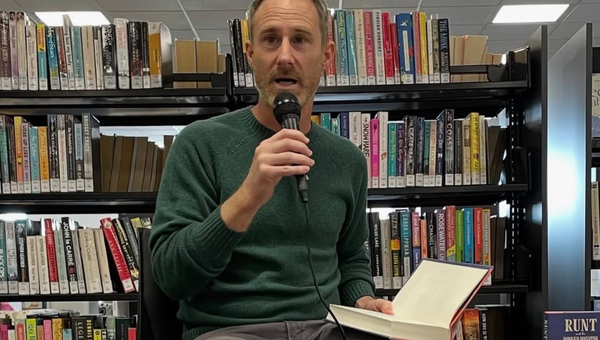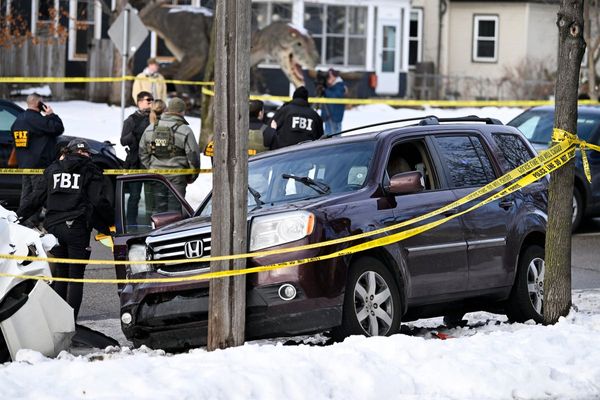
An outbreak of violence has killed up to 150 people in the Highlands of Papua New Guinea, local police said, in what one expert described as a “bushfire that has got out of control” as more forces are sent to calm clashes in the region.
While tribal fighting is not unusual in parts of Papua New Guinea, the issue attracted international attention last week after disturbing footage appearing to show three naked men, tied-up and dragged behind a truck as onlookers cheered, circulated on social media.
Last week prime minister James Marape condemned the violence as “domestic terrorism” and police commissioner David Manning said people in Papua New Guinea were “horrified by the senseless killing in parts of the Highlands region, particularly in Enga province.”
“Security force personnel have been instructed to use all means necessary to detain gunmen and to use lethal force when warranted,” he said.
Experts said that while it was difficult to identify a clear cause for the recent outbreak, conflict may have been exacerbated by a weakening of authorities and access to more powerful weapons in the region.
Prof Philip Gibbs from the Divine Word University in Madang said the latest wave of fighting seems “like a bushfire that has got out of control, fuelled by a generalised loss of hope and purpose particularly in the lives of younger men.”
How common is tribal violence?
Papua New Guinea, located in the south-west Pacific Ocean north of Australia, is home to hundreds of different tribal groups. The Highlands are home to millions of people separated by tough terrain and family ties. Access to land, crops and livestock are often vital for the survival of the smaller tribes in the provinces.
One prominent Engan community leader spoke to the Guardian on the condition of anonymity, fearing retribution on his family members. He said tribal fighting has been used to solve conflicts in most parts of the Highlands, including the Enga province, since before colonisation. Warriors would set a battlefield and imposed strict rules of engagement.
“It has been there … for time immemorial, but there were rules, do not kill children, women and girls, and the old or persons living with disabilities,” he said.
Those rules limited killing to the battlefields and fighting must be “limited to neighbouring clans only”. He said visitors from neighbouring clans could not be harmed.
Why has violence escalated?
The community leader said in recent years, a weakening of the rule of law and less effective judicial system has seen “jungle justice” creep back into parts of the Highlands.
Ruth Kissam, human rights activist and board chair with the advancing PNG Women leaders network, also said the rule of law had weakened in parts of Papua New Guinea.
“The general view is that there’s no strong rule of law in the country and that is adding to the breakdown of law and order,” said Kissam, who is also from Enga.
‘“Equal and consistent disbursement of public services to the people have dwindled in the last two decades and in its place, jungle and tribal justice has taken over. As a country, it is frightening,” she said.
The latest outbreak of violence in Enga Province has seen up to 150 killed in August alone, Enga provincial commander George Kakas said on Friday.
Anthropologist Dr Linus Digim’Rina, from the University of Papua New Guinea, said money has flowed into the region and more weapons are circulating, making the fighting more deadly.
Digim’Rina also said the recent outbreak of fighting doesn’t reflect the traditional culture because it ignores social and political boundaries and etiquette of warring that were practised in the past.
What will happen next?
Additional police and military personnel are being sent to Enga province to tackle the violence and police said search warrants would be used against people who have been involved in the fighting.
“We must be honest and acknowledge that security forces cannot arrest or kill our way out of tribal fighting in Enga,” police commissioner Manning said last week.
“We are dealing with thousands of people who are driven by tens of thousands of years of traditional ways of dealing with conflict,” Manning said. “We must deal with the cause of these conflicts at the roots and stop this senseless violence where it starts.”

The deadly violence has far-reaching impacts on Papua New Guinea. Widespread displacement occurs during fighting, and many end up in the slums of major cities including capital Port Moresby and Lae. Prof Gibbs said there was an “upsurge of violence” in parts of the Enga province during and after the 2022 elections in Papua New Guinea.
“Warring groups were said to be supporters of different candidates in the election,” he said.
The UN’s International Office of Migration reported that in 2022, after conflict and election-related violence, more than 15,000 people were internally displaced in the provinces of Hela, Southern Highlands and Enga. About 25,000 children were unable to attend school and there were reports of rape, kidnapping and other violence.
Prof Gibbs said the latest bout of violence in Enga “urgently needs further investigation and relief, especially for the sake of women and children who are homeless and hungry”.







